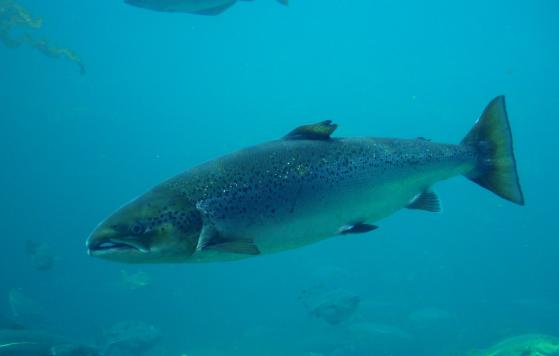About 200 years ago all the salmon in the Connecticut river in New Hampshire, Vermont, Massachusetts and Connecticut died because of pollution caused by humans. Before that, tens of thousands of salmon lived in the river. Now, thanks to the work of environmental activists, wild salmon are returning to the river and laying eggs.
Protecting farmland and forest land from development helps salmon, Mark Zankel told the Valley Post in a phone interview on February 29. He runs the New Hampshire chapter of the Nature Conservancy. “Atlantic salmon and brook trout are more sensitive to water quality than many other kinds of fish,” he said. “Land conservation helps improve water quality.”
On February 27, Zankel's group reported on its Facebook page that Atlantic salmon are returning to the Connecticut river.
Because of a grassroots protest movement, the Vermont Yankee nuclear power plant near Brattleboro closed permanently in 2014. For the first time in decades, the Connecticut river froze downstream from the reactor.
The average Atlantic salmon is 29 inches long.
photo by www.smokehouse.ie

Post new comment